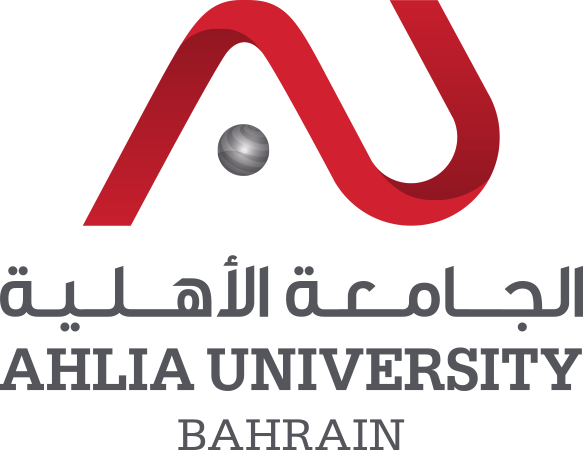
Goal 17 / 17.4 / 17.4.1
University's Commitment to SDG Education
Ahlia University’s Commitment to SDG Education Across All Programmes
University-Wide Commitment to SDGs
Ahlia University (Bahrain) has a strong institutional commitment to meaningful education around the United Nations Sustainable Development Goals (SDGs), embedded across all its programmes. This commitment is not limited to a few courses or departments, but is integrated into the university’s core functions – teaching, research, and community engagement. In its strategic vision, Ahlia regards social responsibility and sustainability as prioritized elements, ensuring that the SDG ethos permeates the entire institution sdgs.un.org. The university’s leadership has formally registered this commitment on the UN’s SDG Partnership Platform, highlighting Ahlia as a leading private higher education institution in Bahrain dedicated to the 2030 Agenda.
Ahlia’s dedication to SDGs is comprehensive and university-wide. It has developed an official University Sustainable Development Plan (2021–2025) to guide SDG integration at all levels. This plan aligns Ahlia’s efforts with both the UN 2030 Agenda and Bahrain’s national development strategies (Vision 2030), underlining that sustainability and the SDGs are key pillars of the university’s mission. Crucially, Ahlia has committed to revise its curriculum structure to include long-term sustainable thinking skills and social responsibility across all fields of study, ensuring every programme contributes to these goals sdgs.un.org. In other words, every student at Ahlia, regardless of discipline, is exposed to education for sustainable development and the values of the SDGs. This holistic approach demonstrates that meaningful SDG education is a university-wide mandate at Ahlia, not an isolated initiative.
Ahlia University Sustainability Initiative
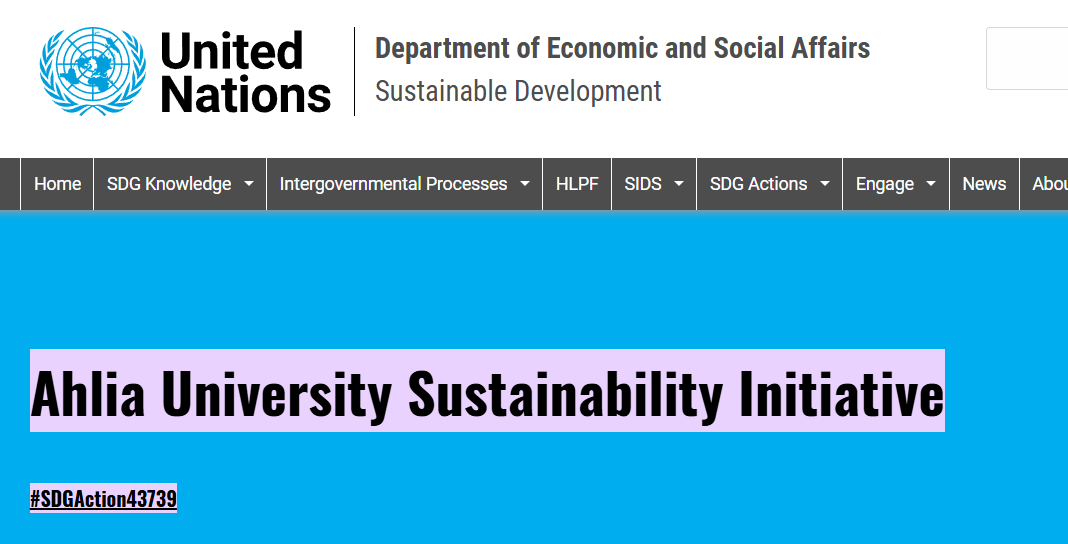
Description
Ahlia University considers Social Responsibility and Sustainability as part of its prioritised strategies that is embedded in its core functions including teaching, research and community. The University is committed to contribute and work towards United Nations Sustainable Development Goals through encouragement of research in various research areas such as quality education, equal opportunities and sustainable growth. In order to create a recognised impact Ahlia University promotes partnership with national and international organisations tackling UNSDGs.
Implementation of the Project/Activity
Ahlia University (AU) aligned the UNSDGs initiatives as part of it strategies, a University Sustainable Development Plan (2021-2025) was developed and approved with clear set of initiatives to contribute to the overall UNSDGs with prioritized measures. In the next 5 years AU is committed to increase the number of publications in specific areas including gender equality, quality education and sustainable growth. AU is also committed to revise the structure of the curriculum to include higher percentage of critical long term sustainable thinking skills with social responsibility across all fields. AU aims to produce society ready graduates equipped with social responsibility and life-long learning skills to support managing global growth and sustainability. In order to assure effective implementation of the planned initiatives within the Sustainable Development Plan (2021-2025) the plan will be evaluated by Centre for Accreditation and Quality Assurance and reported to the University senior management for decision making. The actions will be measures the contribution in increasing number of research in relation to sustainable growth, contribution in various out-reach activities considering social responsibility and promoting life-long learning skills.
Governed
Centre for Accreditation and Quality Assurance at Ahlia University will be responsible to communicate with other national and international networks to engage and share best practices of implementing and contributing to United Nations Sustainable Development Goals through contributing in events at both levels hosting and contributing. In addition, the Centre will be also the focal point for revising policies and procedures to support the implementation of UNSDGs.
Supporting the 2030 Vision and National Strategies
Ahlia University actively supports the 2030 vision for sustainable development, both globally and nationally. The Kingdom of Bahrain’s Economic Vision 2030 and related national strategies closely align with the UN SDGs, and Ahlia has positioned itself to contribute to these long-term objectives. The university’s Sustainable Development Plan (2021–2025) explicitly ties into Bahrain’s national 2030 initiatives, seeking to create impact at national, regional, and international levels. In practical terms, this means Ahlia’s programs and research are designed to address development priorities such as economic diversification, social equity, and environmental stewardship envisioned in the 2030 national agenda. For example, Ahlia’s research strategy identifies niche areas (entrepreneurship, Islamic finance, ICT, etc.) where it can bolster national development plans and Bahrain’s Vision 2030 goals ahlia.edu.bh. University leaders emphasize that aligning with the UN’s 2030 Agenda is part of Ahlia’s responsibility; Ahlia’s founding president publicly affirmed the importance of higher education in achieving the SDGs by 2030 ahlia.edu.bh. By integrating the SDGs into its strategy and operations now, Ahlia is actively supporting the global 2030 Agenda and Bahrain’s own vision for sustainable development.
AHLIA UNIVERSITY SUSTAINABILITY
Ahlia University recognizes its responsibility to support the society in their transition toward sustainability. To create a more sustainable future, AU generates the needed knowledge and cultivate citizens and leaders who have the skills and commitment to put that knowledge into practice. The decisions and actions taken by AU reflects its role and duty to the current and future generations. The University provides the strategic guidance, support, and resources to be an institutional model of sustainability for society. In partnership with students, staff, and faculty, we advance the vision for sustainable research, education, connectivity, operations, and governance.

Ahlia University recognizes its responsibility to support the society in their transition toward sustainability. To create a more sustainable future, AU generates the needed knowledge and cultivate citizens and leaders who have the skills and commitment to put that knowledge into practice. The decisions and actions taken by AU reflects its role and duty to the current and future generations. The University provides the strategic guidance, support, and resources to be an institutional model of sustainability for society. In partnership with students, staff, and faculty, we advance the vision for sustainable research, education, connectivity, operations, and governance.
As a leading institution for higher education, Ahlia University’s Mission is to move forward the frontiers of human knowledge and elevate the social and living standards of the society.
In support of this mission, the University is committed to:
· Producing graduates who are distinguished by their professional competence, humanistic outlook and uncompromising ethics.
· Providing the facilities and support for its staff to pursue innovative research.
· Establishing Ahlia University as an acknowledged center of excellence in certain fields of knowledge.
· Working in partnership with local and regional communities to support societal and economic needs.
· Thus, Ahlia University believes in the three dimensions of sustainability: social, economic, and environmental which are embedded in its adopted approach. Sustainability in Ahlia University is framed around research, education, connectivity, operations and governance & administration through which the University can make a difference to society and move toward a sustainable future.
Al-Ahliya University hosts a forum on universities' efforts in achieving sustainable development goals.
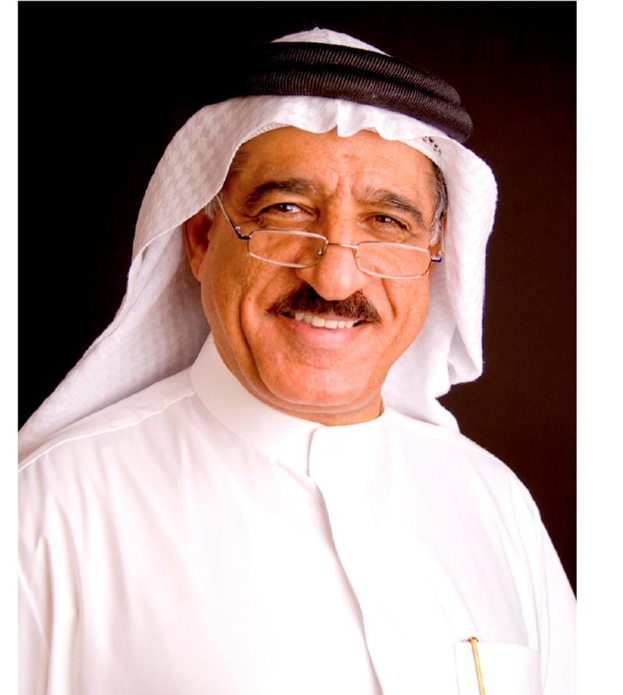
https://alay.am/p/4czr
Officials, academics, and researchers emphasized the importance of universities and various private sector institutions participating in achieving the Sustainable Development Goals (SDGs). They stressed the crucial role of education in addressing numerous emerging issues and challenges, provided that the education is of high quality and keeps pace with the rapidly evolving labor market.
Participants in the forum on the impact of higher education efforts on the SDGs called for leveraging the experience of education during the COVID-19 pandemic to enhance self-directed learning, research-based learning, analytical learning, and optimal investment in intellectual capital.
This came during the forum on the impact of higher education efforts on the UN Sustainable Development Goals, organized by the Ahlia University, with the participation of several universities, educational institutions, quality assurance bodies, international accreditation agencies, and representatives from students and employers.
The Founding President and Chairman of the Board of Trustees of Ahlia University, Professor Abdullah Al-Hawaj, inaugurated the forum and commended the United Nations Sustainable Development Goals (SDGs) and their positive impact on economic development, particularly in Bahrain. He noted that the esteemed government, under the leadership of His Royal Highness Prince Salman bin Hamad Al Khalifa, Crown Prince and Prime Minister, is striving to build a strong economy in line with Vision 2030, aiming to make the Kingdom of Bahrain, God willing, a nation of excellent services in education, health, tourism, and various other sectors.
Professor Al-Hawaj emphasized Ahlia University's commitment to integrating seven of the SDGs into its educational curricula and university activities, which has resulted in the university's inclusion among the United Nations' partners in achieving the SDGs. He stressed the importance of partnerships between universities and scientific institutions and the efforts of the United Nations in achieving the SDGs.
Also participating in the forum was Ms. Esmat Jaafar, Director of the National Qualifications Framework Operations Department at the Education and Training Quality Authority, who reviewed the role of the National Qualifications Framework in achieving the UN SDGs, focusing specifically on Goal 4: Quality Education.
She stated that the National Qualifications Framework comprises 10 integrated stages encompassing education in its various dimensions, phases, and institutions. She reviewed the efforts of the Education and Training Quality Authority in assisting higher education institutions to achieve quality education.
She noted that the National Framework focuses on the quality of educational institutions and their programs, and, more importantly, motivates educational institutions to respond optimally to labor market demands.
Dr. Amina Boualai, Head of the Scientific Research Department at the Higher Education Council, also participated in the forum, where she spoke about intellectual capital and its fundamental role in achieving high-quality higher education. She stated that intellectual capital is crucial for many students, institutions, countries, and sectors. She emphasized that focusing on intellectual capital creates better opportunities for universities, and stated that the reputation and standards of universities can be positively or negatively affected depending on the type of knowledge they identify, create, and provide to students. She added that intellectual capital has changed since the COVID-19 pandemic, as students now have the option of university education or distance learning, which has altered the concept of intellectual capital due to changes in teaching and learning methods.
She emphasized the responsibility of academics to adopt teaching methods that keep pace with current and future changes and developments.
Professor Allam Ahmed, President of the World Organization for Sustainable Development (WASD), also participated in the forum, stressing the crucial role of universities in achieving the Sustainable Development Goals. He emphasized that the success of leading nations in this area was due to the proactive approach of their universities. He stated that the role of universities does not end with graduating qualified individuals, but extends to helping them integrate into the labor market and become positive members of society, playing an active role in achieving positive change.
Professor Allam Ahmed reviewed the Egyptian experience in developing a sustainable development plan, noting that each country has its own specific circumstances regarding achieving the Sustainable Development Goals (SDGs). He emphasized that gender equality and providing quality education are among the most important priorities for sustainable development in the Arab region.
Also speaking at the forum was Professor Youssef Abdel Ghaffar, President of the Regional Network for Social Responsibility, who addressed the issue of unemployment in the Arab world and the role of education in tackling this problem by keeping pace with developments and emerging trends. Professor Abdel Ghaffar called for strengthening academic freedom and the independence of educational institutions, and for universities to engage with societal concerns in order to contribute positively to addressing them. While emphasizing the need to enhance the presence of practical training in university programs and curricula, he stressed the importance of fostering a spirit of partnership and cooperation among different universities, rather than competition.
Mr. Betty Lovi, an economist at the United Nations Development Programme (UNDP), discussed the impact of sustainable development initiatives undertaken by higher education institutions, emphasizing the importance of universities participating in raising community awareness about global challenges such as poverty, education, and the environment.
Lovi emphasized the United Nations' conviction that achieving sustainable development cannot be based solely on government efforts; it requires concerted efforts from society and all sectors. He discussed the four essential roles of higher education institutions in sustainable development: they must educate students about sustainable development and integrate it into their curricula; they must support research related to sustainable development; universities must engage with society, not only teaching but also applying knowledge; and universities must share knowledge with other universities. He stressed that sustainable development is inclusive, affecting both rich and poor countries, and that everyone can play a vital role in its implementation.
Embedding Sustainability in University Culture
The concept of sustainability at Ahlia University goes beyond coursework – it is a guiding principle in the university’s culture, policies, and daily operations. Ahlia views sustainability and social responsibility as fundamental values, embedding them into decision-making and institutional practices sdgs.un.org. For instance, Ahlia encourages socially responsible research that addresses local and regional challenges, ensuring that research projects consider their environmental, economic, and social impacts ahlia.edu.bh ahlia.edu.bh. This reflects a campus culture where sustainability is not an abstract ideal but a practical commitment to improve community well-being and environmental quality.
On campus, Ahlia has introduced initiatives like paperless systems and digital learning platforms to reduce waste (e.g. using e-learning systems to cut down on paper handouts) ahlia.edu.bh. The university’s governance includes a Centre for Accreditation and Quality Assurance tasked as the focal point for integrating the SDGs – revising policies and procedures to support sustainability implementation across all units sdgs.un.org. By making its internal policies (from research ethics to campus operations) reflect sustainability principles, Ahlia fosters an environment where students and staff alike practice and experience sustainability daily. This comprehensive approach ensures that sustainability at Ahlia is not just taught, but also actively lived on campus.
Sustainability in Research
Research does not take place in a vacuum. AU is firmly situated in the Bahraini community and so pledges to share its scholarly expertise through research in partnership with the community to find solutions to local problems. In other words, AU is committed to undertaking socially responsible research that has a positive impact on local challenges.
The Mission of the University with respect to research is to carry out research in partnership with business, industry and the local community to provide innovative solutions to identified needs; and furthermore, to disseminate the findings of research in order to make a difference to the prosperity of the Bahraini community and the wider Gulf region. Goal 8 of the Strategic Plan 2016-2020 expresses AU’s determination to make a positive contribution to the development and prosperity of its communities. We work with faculty members, students and external partners in both industry and community to support world-class research and enterprise and to develop a sustainable portfolio of activities that strengthen and underpin the University’s research base.
A rich diversity of research is conducted at AU where both basic and problem-oriented research is valued to generate knowledge and contribute to society. Recognizing the interconnected nature of complex local, regional and global issues, our researchers collaborate across disciplines to inform and advance solutions to contemporary problems. AU is fully aware of and responsible for the environmental, economic and social implications of its research.
Taking into account AU’s teaching and learning programmes and staff profile, as well as the needs of the Bahraini community, Economic Vision 2030, and the Bahrain National Strategy for Research, AU decided that it can make a strong contribution in the four niche areas of Entrepreneurship, Islamic Banking and Finance, Information and Communication Technology as well as a community-based research project. These encompass the goals, strategic objectives and KPIs of the AU Strategic Plan 2016-2020. They also demonstrate AU’s commitment to providing support for research to be undertaken in four niche (focus) areas, which will have strong outputs, and will have a positive impact on industry, business, and/or society. In particular, AU is committed to undertake socially responsible research with a particular emphasis on ICT that has a positive impact on local challenges and which meets national needs.
University Policy on Efficient Use of Paper
All academic and administrative units of the University shall abide by the commitments made under the University Policy on Healthy Environment Policy in order to implement the principle of ’rethink ’ reduce ’ reuse ’ recycle’ in its paper usage by:
· Encouraging the use of electronic-based instead of paper-based versions of communication (of documents, memorandums, exams, handouts, etc.) whenever possible;
· Printing and copying double-sided, when appropriate;
· Allowing and encouraging students to submit double-sided assignments.
· Purchasing paper with greater recycled and post-consumer content, when economically feasible
For this purpose, academic and administrative units shall make every reasonable effort to:
· Encourage the use of electronic and web-based communications, documents, assignments, etc.
· Set the default on printers and copiers as double-sided;
· Encourage students to submit assignments double-sided;
· Print and copy double-sided (documents, memorandums, exams, handouts, etc.)
· Use effectively the Moodle System to post syllabi, notes and notices in a way that reduce the over consumption of paper (e.g. post PowerPoint slides six to a page)

SDGs in the Curriculum and Academic Programs
Ahlia University has integrated the SDGs into its curriculum across all programs, ensuring students acquire sustainability knowledge and skills regardless of their field of study. In line with UNESCO’s Education for Sustainable Development (ESD) framework, Ahlia redesigned its academic programs to embed key sustainable competencies into course learning outcomes. The university aligned its graduate attributes with SDG-related skills – including adaptability, personal resilience, global citizenship, ethical reasoning, research and innovation – so that every program cultivates these competencies in students. These skills are woven into specific courses via intended learning outcomes and assessed throughout the four years of study, guaranteeing that sustainability concepts are progressively reinforced as students advance.
Concrete examples of curriculum changes include the introduction of new courses focusing on SDG themes. Ahlia launched, for instance, an undergraduate elective course on “Equal Opportunity”, which educates students on gender equality and equal opportunities in line with national and global SDG agendas. Across many other courses, content has been updated or added to address sustainable development challenges pertinent to the field – from quality education techniques in teaching programs to ethical business practices and green innovation in business and engineering programs. By infusing sustainability topics into coursework, Ahlia not only raises awareness but also equips students with practical problem-solving experience on real-world issues (such as case studies and projects tackling environmental or social problems).
This curriculum overhaul has yielded tangible outcomes. Students and faculty at Ahlia have collectively produced a surge in sustainability-focused research and projects. Since integrating the SDGs into course requirements and research opportunities, the university has generated over 200 published research studies that offer recommendations supporting society and policy-making in sustainable development areas. These outputs demonstrate how embedding SDGs in the curriculum can translate academic learning into real-world impact. In summary, SDG education is fully embedded in Ahlia’s curriculum, preparing “society-ready” graduates with the values, knowledge, and skills to contribute to sustainable development sdgs.un.org.
Conferences and Initiatives Supporting the SDGs
Ahlia University actively hosts and participates in conferences, forums, and initiatives that support the SDGs, thereby extending its impact beyond the classroom. One flagship event is the annual Equal Opportunities Conference co-organized with Brunel University London, which addresses themes of gender equality and inclusivity (key aspects of SDG 5 and SDG 10). This conference brings together academics, policymakers, and industry experts from around the world – the 6th edition in 2022, for example, drew researchers from 20 countries and covered topics spanning SDG3 (health), SDG4 (education quality), SDG5 (gender equality), SDG8 (economic growth), SDG11 (sustainable cities), and SDG17 (partnerships). By focusing on “sustainable leadership and technology innovation,” the event facilitated high-level discussions on how to advance various SDGs, and even attracted United Nations representatives who commended the research outcomes and emphasized their value for informing national policy. The conference’s recommendations have been used by government and private organizations to develop policies promoting equal opportunities and sustainable development, underscoring Ahlia’s role in knowledge-sharing for the SDGs. Additionally, Ahlia has integrated outcomes from these conferences into academia – for instance, insights from gender equality discussions helped spur the creation of the aforementioned “Equal Opportunity” course and new policies (like updated admission and HR policies to support women) on campus.
Beyond this, Ahlia University has organized and hosted other SDG-aligned events. The university held an international forum on quality education in virtual learning, convening dozens of experts and officials to devise measures for improving education quality (supporting SDG4) in the context of online learning. In 2022, Ahlia also co-hosted the 1st International Conference on Sustainable Design & Architecture, focusing on creating sustainable ecosystems in architecture (which ties into urban sustainability and innovation goals) – a clear indicator that Ahlia’s SDG engagement spans diverse fields. Through such conferences, workshops, and public seminars, Ahlia provides a platform for dialogue on sustainable development and helps drive community awareness and action on the SDGs. These events not only enrich the academic environment for students and faculty but also strengthen Ahlia’s partnerships with international institutions and networks committed to sustainable development ahlia.edu.bh. In essence, Ahlia’s commitment to the SDGs extends into organizing and contributing to impactful SDG-focused events, reinforcing its status as an active player in the global sustainability discourse.
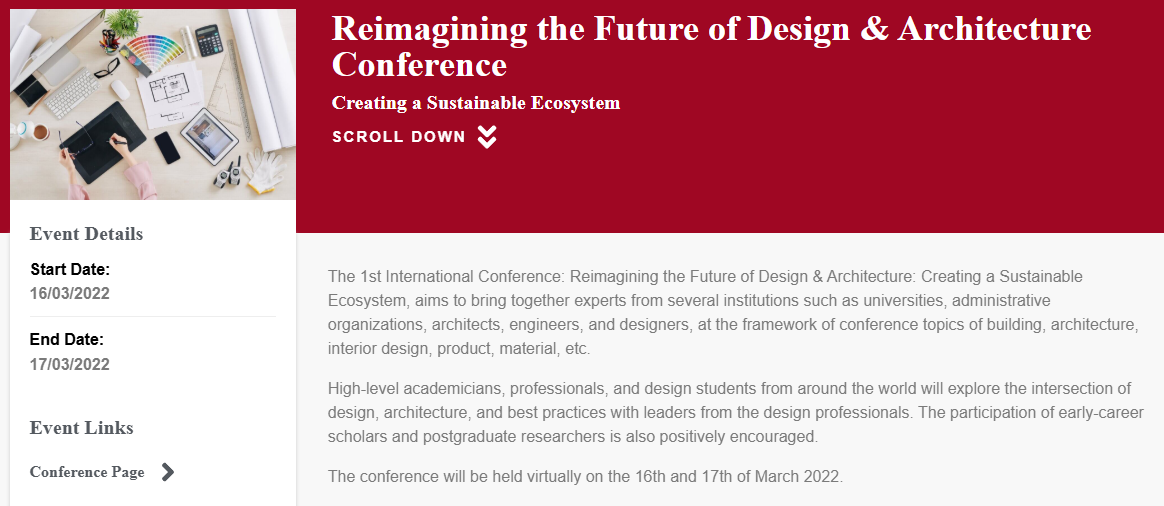
Recognition in Global SDG Rankings (THE Impact Rankings)
Ahlia University’s comprehensive efforts around the SDGs have earned it international recognition, particularly in the Times Higher Education (THE) Impact Rankings – a global ranking system that evaluates universities against the UN SDGs. Ahlia has not only entered these prestigious rankings, but quickly ascended to top positions, reflecting its effectiveness in SDG education and implementation. In the THE Impact Rankings 2021, Ahlia was ranked in the 101–200 band globally overall, out of 1,591 participating universities ahlia.edu.bh. Notably, it achieved outstanding subject rankings: 15th in the world for Quality Education (SDG 4), while also being ranked first in Bahrain for that category ahlia.edu.bh. The university likewise excelled in Reduced Inequalities (SDG 10), contributing to its strong overall performance ahlia.edu.bh.
Ahlia sustained this high impact in the following year. In THE Impact Rankings 2022, it remained among the global leaders in key SDGs – for example, Ahlia was 23rd worldwide in SDG 4 (Quality Education) and 17th worldwide in SDG 10 (Reduced Inequalities) ahlia.edu.bh. These are remarkable positions on a global scale, especially for a young private university, and they indicate that Ahlia’s strategies (such as prioritizing quality education, gender equality, decent work, and partnerships) are yielding measurable results. Such achievements align with Ahlia’s strategic plan that explicitly targets SDG benchmarks in areas like education quality, gender equality, economic growth, reducing inequalities, and partnerships ahlia.edu.bh.
This external validation has bolstered Ahlia’s drive to “be on the top” in sustainable development initiatives. Being the top-ranked university in Bahrain in the Impact Rankings, Ahlia has set a national example and a source of pride in the country. University leadership underscores that these rankings reflect Ahlia’s deep commitment to the SDGs in teaching, research, community service, and campus operations ahlia.edu.bh. The President of Ahlia noted that the Impact Rankings showcase the university’s support for the UN SDGs across education, scientific research, knowledge transfer, and internal practices ahlia.edu.bh. In other words, Ahlia’s high standing in THE Impact Rankings is both an outcome and a reinforcement of its institution-wide approach to sustainability. Looking ahead, Ahlia continues to strive for excellence in such rankings, aiming to remain among the world’s leaders in SDG performance. This aligns with the university’s broader ambition to climb global academic rankings (e.g. aiming for top 500 globally and top 5 regionally as per its leadership) while maintaining a core focus on quality and impact ahlia.edu.bh.
Times Higher Education Ranks Ahlia University First in Bahrain
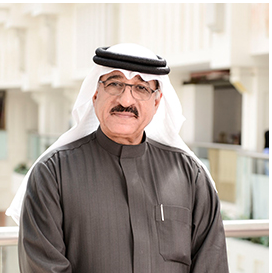
Ahlia University Achieves Multiple Successes and Paves Its Way Towards Global Recognition Prof. Al-Hawaj: We are proud to attract students who are seeking excellence and distinction The University Ranks 15th Globally in Education Quality
Ahlia University has achieved a high ranking in the Times Higher Education Impact Rankings. The University is ranked 101+ out of the best 1591 universities selected from different countries worldwide, which are the highest in impact and achievement of sustainable development goals. According to the United Nations’ Sustainable Development Goals, Ahlia University was ranked first locally and fifteenth globally in education quality index.
This achievement represents the value of responsibility that the University adopts towards the community. The University is committed to achieving specific standards for United Nations SDGs as part of its strategic plan, including education quality, gender equality, decent work, economic growth, reducing inequalities, and partnerships.
The World University Rankings (QS) has ranked Ahlia University 201-250 globally in the field of accounting and financial science based on the high academic reputation of the College of Business and Finance, the high satisfaction of stakeholders and institutions in the labor market with graduates, and advanced achievements in scientific research published by the University’s professors and students.
Locally, the University obtained institutional accreditation from the Higher Education Council in the Kingdom of Bahrain, and from the Education and Training Quality Authority for its commitment to quality assurance standards.
On this occasion, the Founding President and Chairman of the Board of Trustees, Prof. Abdulla Al-Hawaj, emphasized that this great achievement is a source of pride and honor, and it is primarily attributed to the wise leadership. Without the support, sponsorship, guidance, and assistance of His Majesty King Hamad bin Isa Al Khalifa, the King of Bahrain, and His Royal Highness Prince Salman bin Hamad Al Khalifa, the Crown Prince and Deputy Supreme Commander, and the Prime Minister, and various government ministries and institutions, including the Ministry of Education and the Higher Education Council, Ahlia University would not have achieved this global position.
Institutional Accreditation from HEC
Ahlia University’s President, Prof. Mansoor Alaali, congratulated the University’s members and partners on its achievement in the Times Higher Education ranking, noting that this annual ranking compares the performance of universities worldwide and measures their effectiveness in relation to the United Nations’ sustainable development goals, such as good education, decent work, economic growth, and reducing inequalities.
Moreover, the impact ranking shows the institution’s commitment to supporting the United Nations’ sustainable development goals in the fields of education, scientific research, and knowledge transfer, as well as its internal practices.
This achievement is a significant addition to the University’s accomplishments that has achieved in recent years, including obtaining institutional accreditation from the Higher Education Council and topping institutional and program quality lists according to reports issued by the Education and Training Quality Authority. Additionally, the University has distinguished partnerships with several prestigious international universities, including Brunel University London and George Washington University – USA.
Ahlia University conducts and implements world-class scientific research and builds strategic partnerships with prestigious universities and educational institutions worldwide.
Successful in International Student Exchange
The University has attracted groups of international students through its international student exchange program with a number of European universities. Additionally, the University has provided some of its interested students with the opportunity to study in UK and France for a semester or more, to enhance their academic and specialized capabilities in this field.
Moreover, the University has graduated many students from Ph.D. programmes. These programmes are offered in collaboration with Brunel University London and designed citizens, Gulf nationals, and residents who desire to complete their higher studies without traveling to the university’s headquarters in London. The University provides students with all necessary support, including experienced academic advisors and scholars from the world’s top universities, as well as research resources and massive databases available in the university’s library for all its students and members.
As a result, the students have been able to conduct studies at the highest scientific and research levels, which have been praised and appreciated by many experts and professionals at Brunel University London.
Ahlia University Graduates Occupy Top Leadership Positions
The University has graduated 17 cohorts, who have taken up high-level leadership positions in government and private sectors. Others have become successful entrepreneurs, creating job opportunities, and contributing to the economy. The graduates have showcased their creativity and innovation in various fields, including Amina Al-Hawaj, who has won several international awards for her inventions in physical therapy.
Ahlia University Founding President, Prof. Abdulla Al-Hawaj, aims to make the University one of the top 500 universities globally and one of the top five private universities in the region. The University sets continuously strategic plans to achieve the ambition and attract experienced scholars and professors from top universities worldwide. The University focuses on quality academic programs, research, teaching, and attracting elite students.
50% Scholarships for High Achievers, Orphans, and People with Disabilities
The University offers partial scholarships to its high-achieving, outstanding, and creative students, as well as orphans and people with disabilities. The University also allows all its students to benefit from partial scholarships for those who achieve advanced grades during their university studies.
Ahlia University President, Prof. Mansoor Alaali, emphasizes the University’s intention to offer new distinguished programmes that align with the requirements of the labour market, and to continue its efforts in publsihing scientific research papers and conduct research that serves Bahrain, and employ the latest teaching and learning methods to produce distinguished, creative, and productive graduates.
Distinguished Programmes Meet the Labour Market Requirements
Prof. Alaali notes that Higher Education Council’s efforts have a significant impact on coordinating the programmes offered by higher education institutions, providing graduates with a competitive edge and diversity that helps them enter the labour market, create new jobs, and provide solutions to the issue of offering similar programmes by higher education institutions.
Ahlia University is the first private university in Bahrain, with around 2,000 students enrolled in its four colleges: the College of Information Technology, the College of Business and Finance, the College of Arts and Science, and the College of Engineering. The University has aimed to provide a high-quality education since its establishment, enhancing Bahrain’s pioneering role in higher education.
In summary, Ahlia University has affirmed a “Yes – for all programmes” commitment to meaningful SDG education across the institution. From aligning its strategic plans with the UN 2030 Agenda and Bahrain’s Vision 2030, to infusing sustainability into curricula, research, and campus life, Ahlia ensures that sustainable development is a unifying theme of an Ahlia education. The university backs up this commitment through actionable initiatives: developing a sustainability policy and plan, revising curricula to embed SDG competencies, hosting high-profile conferences on sustainability issues, and forging partnerships to amplify impact ahlia.edu.bh. As a result, Ahlia’s dedication to the SDGs has been globally recognized via the Times Higher Education Impact Rankings, where it leads nationally and excels internationally in categories like quality education and reducing inequalities ahlia.edu.bh ahlia.edu.bh. All these efforts illustrate that Ahlia University, as a whole, is devoted to providing meaningful SDG-focused education and contributing to sustainable development across all its programmes – preparing graduates not just for jobs, but to be responsible global citizens driving the 2030 Agenda forward.

Copyright 2024 © All rights Reserved. Ahlia University
